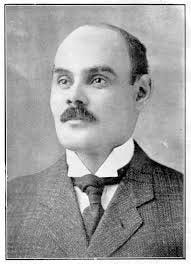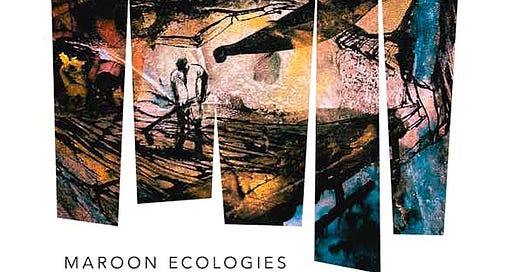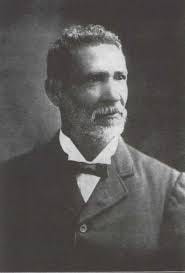In Chris Thomas King’s recent book on blues, which I’ve discussed before, he proposes that the infamously mysterious origins of blues and jazz did not emerge from the fog of spontaneous folkways, but were cultivated by educated, musically literate and politically self-aware folks. They even had names- like the Desdunes family. One of their descendants, Mamie Desdunes sang what Jelly Roll Morton considers, “among the first blues that I’ve ever heard,” the famous 2:19 Blues, which he heard around the turn of the last century or so.
Mamie’s father was Rodolfo Lucien Desdunes, a poet and civil rights activist who was part of the Comité des Citoyens.
That committee organized a brave, but tragically unsuccessful attempt to undo segregation in the courts. The failure of that effort (Plessy v Ferguson) sealed the final end of whatever was left of Reconstruction and inaugurated the brutal Jim Crow era. King paints a portrait of the blues emerging at this time as a final attempt to salvage that free, libertine creole culture, as opposed to the encroaching depression of anglo-puritanism and it’s overwhelming racial oppression.
I was thinking about that book again when I was reading Benjamin Barson’s Brassroots Democracy and the Birth of Jazz: Hearing the Counter-Plantation in Black Atlantic Sonic Culture, 1791-1928 (now a book- it’s on my hanukah list)
Like King, Barson sees the origins of blues and jazz as deeply connected to self-aware political movements. He also focuses on the Desdunes family and details the influence of their Haitian-inherited ideals about democracy and equality. His detailed thesis complements King’s sketches and leads to novel observations, such as the fact that “swinging” music and crossing the transportation color line were both atttributable to the Desdunes and happened in the same year. Someone could make a nice movie out of that.

He especially fills out the Haitian connections. Of course, Haiti has been featured on this blog of late because of its locus as a center of international democractic thought in the 18th and 19th centuries. As we now know, Haitian thinkers had a profound impact on European ideals of democracy and the conversation was a vibrant two-way street, faciliated by “secular” organizations, one of whom was the masons. And this trace shows up in Barson,
Rodolphe Lucien Desdunes, whose father was a wheelwright from Haiti and whose mother had been born in Cuba, carried on the family tobacco shop. Desdunes was an active Mason who took a broad view of the struggle, which he saw as encompassing the principles of the French and Haitian revolutions, the Louisiana Constitution of 1868, and the history of the fight for equal rights across the Caribbean… Degrees of Freedom (Barson quotes this)
Masonic connections pop up all over Barson’s work, but he doesn’t make a big deal out of them. One suspects he might not be aware of the role the Masonic lodges played in those intellectual movements.
By the 1880s in New Orleans, men of color had been muscled out of most public offices, but a strong current of egalitarian aspiration and organization continued to manifest itself in the dockworkers’ union and among Afro-Creole activists who worked out of Masonic lodges and their own small shops.
Musicians in Thibodaux were busy, and like their New Orleans peers were often employed developing music in the service of communal mobilizations: for fire companies, for mutual aid societies such as Masonic lodges, and even for plantations during carnival season.
Buddy Bolden, a key figure in the crucial early years of blues and “jazz”, favored playing in his Masonic hall and there are plenty of sites online that document the Masonic membership of jazz folks ranging from Count Basie to Duke Ellington to Lionel Hampton to, of course, Sun Ra. Hell, Mississippi Fred McDowell is supposedly buried in full Masonic regalia.
The point of this is not to retreat into esoteric fantasies, but instead to see that the Masonic role was a practical and necessary solution to the real problem of organization or, in plainspeak, “how to get one’s shit together.” It was necessary because the government and other organizations were failing, and people had needs. It gave them a place to retreat to. Is it still viable? Probably not in the same way, and there is no need to get precious or nostalgaic about them- but we might need to imagine what a current day version might look like.
The other big point is that blues and jazz, as we now understand it, didn’t spontaneously emerge from the unsullied volk, but were cultivated and developed. The spaces this happened in weren’t just the hell and fire brimstone of (anglo) church-life, which so often gets credit for bluesy tonality (the oral histories of many early jazz players, like Jelly Roll Morton and Louis Armstrong show a strong ambivalence about those places), but were enlightened, democratic and even, dare I say- rational. I don’t want to make too much of it- masonry was just one part of a much larger cultural eco-system in New Orleans, but I do think you can hear it in the music, and it is something that gets easily “unheard” as the music gets presented in an anglo-cized context that sees it as autochthonic, “folk” and overly “spiritual.”







Thank you for taking the time to engage with my work! Masonic movements were absolutely on my mind during the writing process, but with everything else I was tracing, I found myself without the space to fully explore these significant Atlantic networks, as essential as they were to social and political organization of Afro-Creole communities. My father-in-law, who is a Mason in Mexico, has deepened my appreciation for these connections, so I’m grateful that you’ve brought this into focus. Perhaps this could inspire a follow-up article down the line. Thanks again for reading the book and for your insights on the blues and the music!